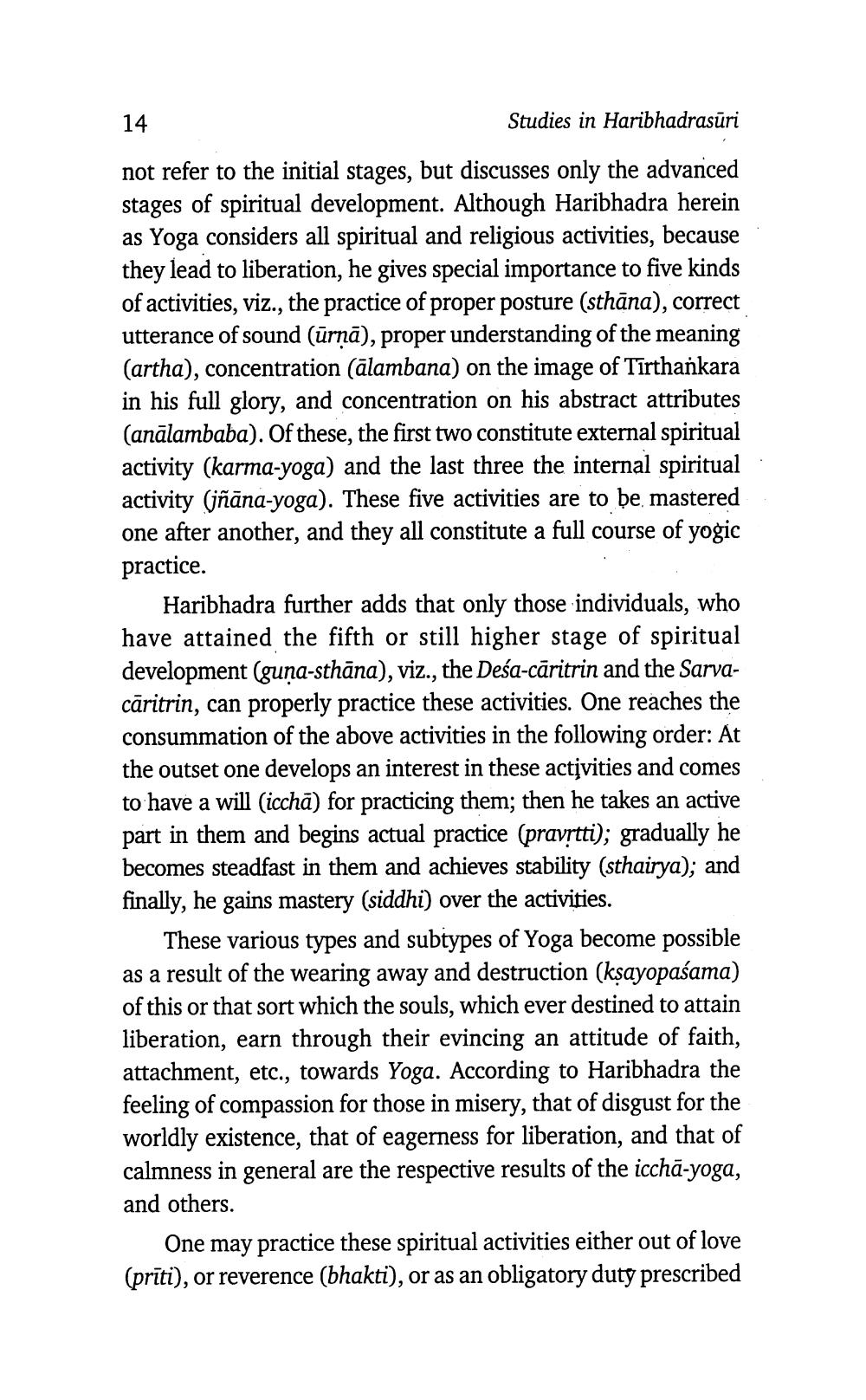________________
14
Studies in Haribhadrasuri
not refer to the initial stages, but discusses only the advanced stages of spiritual development. Although Haribhadra herein as Yoga considers all spiritual and religious activities, because they lead to liberation, he gives special importance to five kinds of activities, viz., the practice of proper posture (sthāna), correct utterance of sound (ūrņā), proper understanding of the meaning (artha), concentration (ālambana) on the image of Tirthankara in his full glory, and concentration on his abstract attributes (anālambaba). Of these, the first two constitute external spiritual activity (karma-yoga) and the last three the internal spiritual activity (jñāna-yoga). These five activities are to be mastered one after another, and they all constitute a full course of yogic practice.
Haribhadra further adds that only those individuals, who have attained the fifth or still higher stage of spiritual development (guna-sthāna), viz., the Deśa-cāritrin and the Sarvacāritrin, can properly practice these activities. One reaches the consummation of the above activities in the following order: At the outset one develops an interest in these activities and comes to have a will (icchā) for practicing them; then he takes an active part in them and begins actual practice (pravrtti); gradually he becomes steadfast in them and achieves stability (sthairya); and finally, he gains mastery (siddhi) over the activities.
These various types and subtypes of Yoga become possible as a result of the wearing away and destruction (ksayopaśama) of this or that sort which the souls, which ever destined to attain liberation, earn through their evincing an attitude of faith, attachment, etc., towards Yoga. According to Haribhadra the feeling of compassion for those in misery, that of disgust for the worldly existence, that of eagerness for liberation, and that of calmness in general are the respective results of the iccha-yoga, and others.
One may practice these spiritual activities either out of love (prīti), or reverence (bhakti), or as an obligatory duty prescribed




